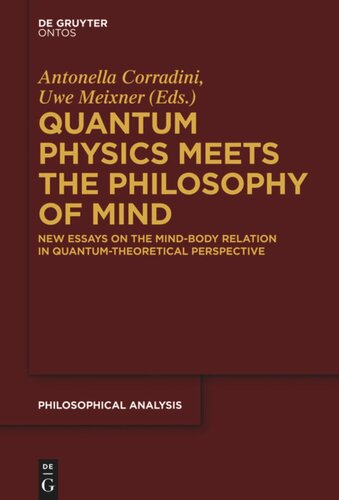

Most ebook files are in PDF format, so you can easily read them using various software such as Foxit Reader or directly on the Google Chrome browser.
Some ebook files are released by publishers in other formats such as .awz, .mobi, .epub, .fb2, etc. You may need to install specific software to read these formats on mobile/PC, such as Calibre.
Please read the tutorial at this link: https://ebookbell.com/faq
We offer FREE conversion to the popular formats you request; however, this may take some time. Therefore, right after payment, please email us, and we will try to provide the service as quickly as possible.
For some exceptional file formats or broken links (if any), please refrain from opening any disputes. Instead, email us first, and we will try to assist within a maximum of 6 hours.
EbookBell Team

4.0
66 reviewsQuantum physics, in contrast to classical physics, allows non-locality and indeterminism in nature. Moreover, the role of the observer seems indispensable in quantum physics. In fact, quantum physics, unlike classical physics, suggests a metaphysics that is not physicalism (which is today’s official metaphysical doctrine). As is well known, physicalism implies a reductive position in the philosophy of mind, specifically in its two core areas, the philosophy of consciousness and the philosophy of action. Quantum physics, in contrast, is compatible with psychological non-reductionism, and actually seems to support it. The essays in this book explore, from various points of view, the possibilities of basing a non-reductive philosophy of mind on quantum physics. In doing so, they not only engage with the ontological and epistemological aspects of the question but also with the neurophysiological ones.